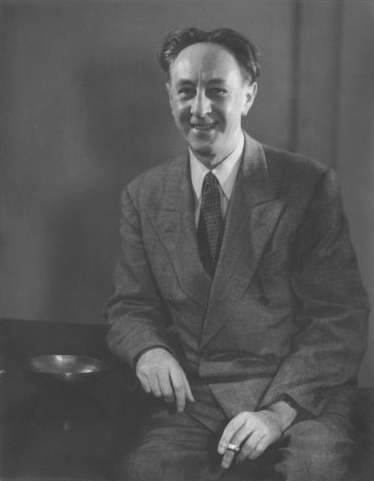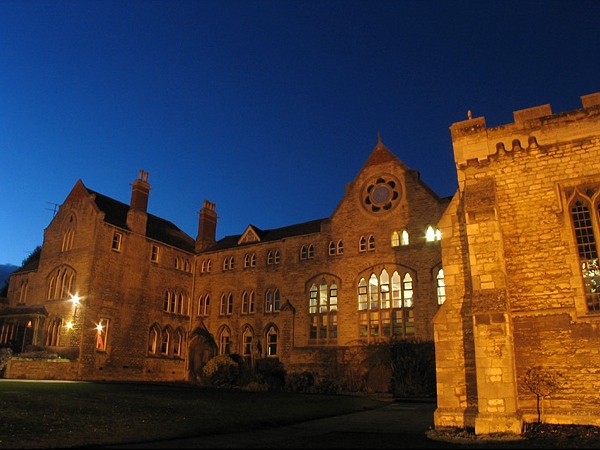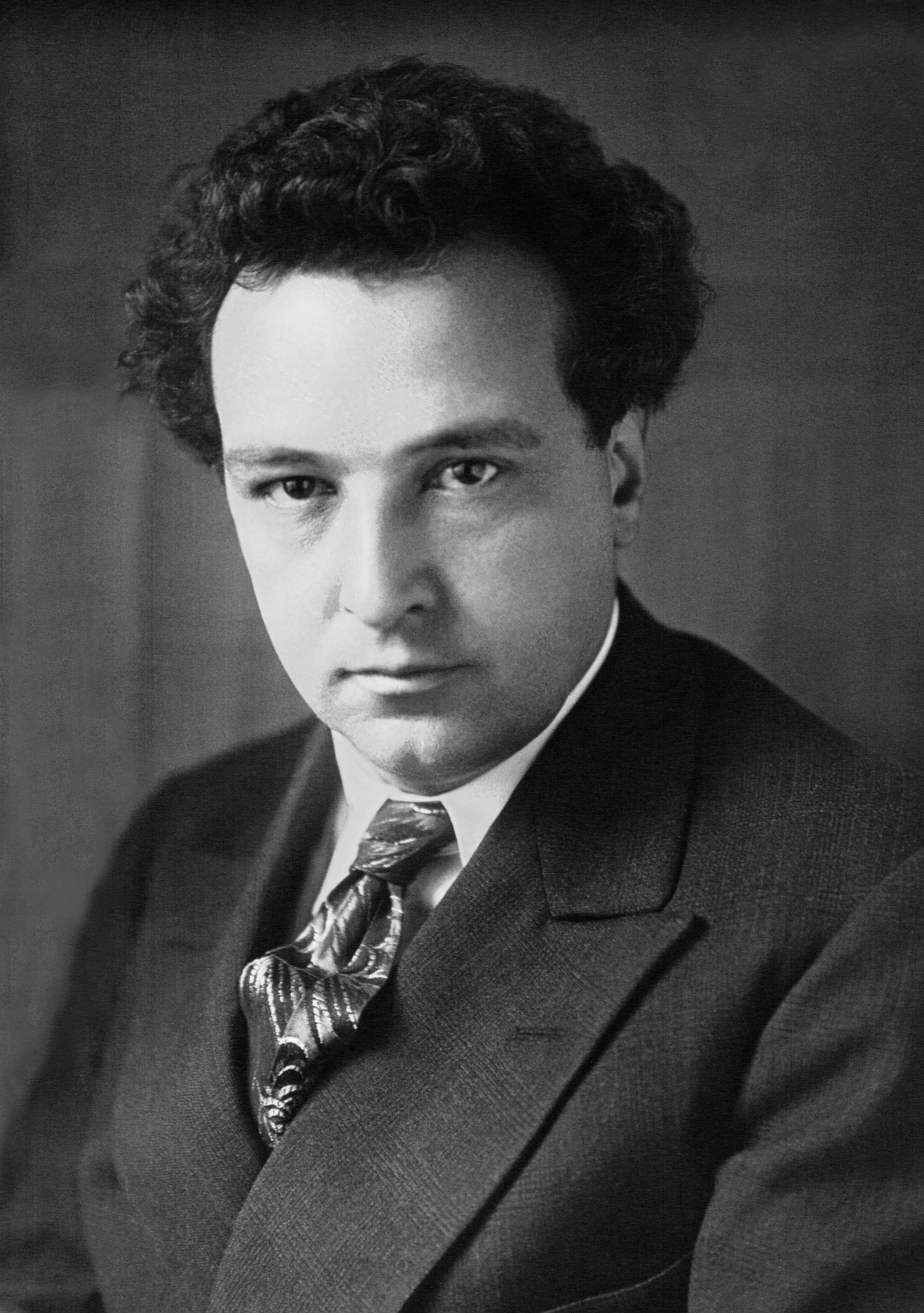|
Double Concerto For Two String Orchestras, Piano, And Timpani (Martinů)
Bohuslav Martinů's Double Concerto for Two String Orchestras, Piano, and Timpani (H. 271) was written in Switzerland in 1938 during deteriorating diplomatic relationships throughout Europe. Commissioned by Paul Sacher for the Basel Chamber Orchestra, it reflects intense impressions, from both the composer's personal life and the political events of the time. The Concerto is structured upon the ''concerto grosso'', the three movements scored as 1. Poco Allegro, 2. Largo, 3. Allegro; its outer movements are characterized by a mood of anxiety expressed through syncopated rhythms, while its ''Largo'' centres upon a defiant, declamatory statement; the concerto as a whole lasting circa 21 minutes in total. The cover of the manuscript score bears the dedication to ''my dear friend Paul Sacher to commemorate the quiet and fearful days spent at Schönenberg amongst the deer and the threat of the war''. Martinů finished the last movement of the sketch on the same day of the signing of t ... [...More Info...] [...Related Items...] OR: [Wikipedia] [Google] [Baidu] |
Bohuslav Martinů
Bohuslav Jan Martinů (; December 8, 1890 – August 28, 1959) was a Czech composer of modern classical music. He wrote 6 symphonies, 15 operas, 14 ballet scores and a large body of orchestral, chamber, vocal and instrumental works. He became a violinist in the Czech Philharmonic Orchestra, and briefly studied under Czech composer and violinist Josef Suk. After leaving Czechoslovakia in 1923 for Paris, Martinů deliberately withdrew from the Romantic style in which he had been trained. During the 1920s he experimented with modern French stylistic developments, exemplified by his orchestral works ''Half-time'' and ''La Bagarre''. He also adopted jazz idioms, for instance in his '' Kitchen Revue'' (''Kuchyňská revue''). In the early 1930s he found his main fount for compositional style: neoclassicism, creating textures far denser than those found in composers treating Stravinsky as a model. He was prolific, quickly composing chamber, orchestral, choral and instrumental w ... [...More Info...] [...Related Items...] OR: [Wikipedia] [Google] [Baidu] |
Michael Tippett
Sir Michael Kemp Tippett (2 January 1905 – 8 January 1998) was an English composer who rose to prominence during and immediately after the Second World War. In his lifetime he was sometimes ranked with his contemporary Benjamin Britten as one of the leading British composers of the 20th century. Among his best-known works are the oratorio ''A Child of Our Time'', the orchestral '' Fantasia Concertante on a Theme of Corelli'', and the opera ''The Midsummer Marriage''. Tippett's talent developed slowly. He withdrew or destroyed his earliest compositions, and was 30 before any of his works were published. Until the mid-to-late 1950s his music was broadly lyrical in character, before changing to a more astringent and experimental style. New influences, including those of jazz and blues after his first visit to America in 1965, became increasingly evident in his compositions. While Tippett's stature with the public continued to grow, not all critics approved of these changes ... [...More Info...] [...Related Items...] OR: [Wikipedia] [Google] [Baidu] |
Concertos For Multiple Instruments
A concerto (; plural ''concertos'', or ''concerti'' from the Italian plural) is, from the late Baroque era, mostly understood as an instrumental composition, written for one or more soloists accompanied by an orchestra or other ensemble. The typical three- movement structure, a slow movement (e.g., lento or adagio) preceded and followed by fast movements (e.g. presto or allegro), became a standard from the early 18th century. The concerto originated as a genre of vocal music in the late 16th century: the instrumental variant appeared around a century later, when Italians such as Giuseppe Torelli started to publish their concertos. A few decades later, Venetian composers, such as Antonio Vivaldi, had written hundreds of violin concertos, while also producing solo concertos for other instruments such as a cello or a woodwind instrument, and concerti grossi for a group of soloists. The first keyboard concertos, such as George Frideric Handel's organ concertos and Johann Sebastian ... [...More Info...] [...Related Items...] OR: [Wikipedia] [Google] [Baidu] |
Compositions By Bohuslav Martinů
Composition or Compositions may refer to: Arts and literature *Composition (dance), practice and teaching of choreography *Composition (language), in literature and rhetoric, producing a work in spoken tradition and written discourse, to include visuals and digital space *Composition (music), an original piece of music and its creation *Composition (visual arts), the plan, placement or arrangement of the elements of art in a work * ''Composition'' (Peeters), a 1921 painting by Jozef Peeters *Composition studies, the professional field of writing instruction * ''Compositions'' (album), an album by Anita Baker *Digital compositing, the practice of digitally piecing together a video Computer science *Function composition (computer science), an act or mechanism to combine simple functions to build more complicated ones *Object composition, combining simpler data types into more complex data types, or function calls into calling functions History *Composition of 1867, Austro-Hungarian/ ... [...More Info...] [...Related Items...] OR: [Wikipedia] [Google] [Baidu] |
Richard Hickox
Richard Sidney Hickox (5 March 1948 – 23 November 2008) was an English conductor of choral, orchestral and operatic music. Early life Hickox was born in Stokenchurch in Buckinghamshire into a musical family. After attending the Royal Grammar School, High Wycombe from 1959 to 1966, he studied at the Royal Academy of Music in London from 1966 to 1967, then was an organ scholar at Queens' College, Cambridge from 1967 to 1970. Career In 1967, while his father was Vicar of Wooburn, Buckinghamshire, Hickox founded the Wooburn Festival and eventually became its president. The Festival still takes place and features music, drama and the visual arts. Hickox also founded the Wooburn Singers and continued as conductor until succeeded by Stephen Jackson. From 1970 to 1971 Hickox was Director of Music at Maidenhead Grammar School (later Desborough School). He founded the City of London Sinfonia in 1971, remaining music director until his death, and also founded the Richard Hickox Si ... [...More Info...] [...Related Items...] OR: [Wikipedia] [Google] [Baidu] |
Charles Mackerras
Mackerras in 2005 Sir Alan Charles MacLaurin Mackerras (; 1925 2010) was an Australian conductor. He was an authority on the operas of Janáček and Mozart, and the comic operas of Gilbert and Sullivan. He was long associated with the English National Opera (and its predecessor) and Welsh National Opera and was the first Australian chief conductor of the Sydney Symphony Orchestra. He also specialized in Czech music as a whole, producing many recordings for the Czech label Supraphon. Early life and education Mackerras was born in Schenectady, New York, to Australian parents, Alan Mackerras and Catherine MacLaurin. His father was an electrical engineer and a Quaker. Mackerras grew up in a very musical family and his mother was immensely cultured. In 1928, when Charles was aged two, the family returned to Sydney, Australia. They initially lived in the suburb of Rose Bay, and in 1933 they moved to the then semi-rural suburb of Turramurra. Mackerras was the eldest of seven ... [...More Info...] [...Related Items...] OR: [Wikipedia] [Google] [Baidu] |
Rafael Kubelik
Rafael may refer to: * Rafael (given name) or Raphael, a name of Hebrew origin * Rafael, California * Rafael Advanced Defense Systems, Israeli manufacturer of weapons and military technology * Hurricane Rafael, a 2012 hurricane Fiction * Rafael (TV series), ''Rafael'' (TV series), a Mexican telenovela * Rafaël (film), ''Rafaël'' (film), a 2018 Dutch film People * Rafael (footballer, born 1978) (Rafael Pires Vieira), Brazilian football striker * Rafael (footballer, born 1979) (Rafael da Silva Santos), Brazilian football defender * Rafael (footballer, born 1980) (Rafael Pereira da Silva), Brazilian football right-back * Rafael (footballer, born March 1982) (Rafael de Andrade Bittencourt Pinheiro), Brazilian football goalkeeper * Rafael (footballer, born August 1982) (Rafael dos Santos Silva), Brazilian football striker * Rafael (footballer, born 1984) (Alberto Rafael da Silva), Brazilian football goalkeeper * Rafael (footballer, born 1986) (Rafael Diego de Souza), Brazilian ... [...More Info...] [...Related Items...] OR: [Wikipedia] [Google] [Baidu] |
Concerto For Double String Orchestra (Tippett)
Michael Tippett's ''Concerto for Double String Orchestra'' (1938–39) is one of his most popular and frequently performed works. Background Like other works of the composer's early maturity such as the First Piano Sonata and the First String Quartet, the Concerto is characterized by rhythmic energy and a direct melodic appeal. Representing both a meeting point for many of his early influences and a release for the catalytic experiences that defined the decade after leaving London and the Royal College of Music, the Concerto was an experiment in multiplicities, where the diversity of the thematic material (invented and imported) became synthesized through the timbral unity of the ensemble—two ensembles in fact, a further manifestation of the opposition and divisions contributing to the work’s multi-dimensionality. Tippett identified the polyrhythms and Northumbrian elements in the piece as coming from the influence of Jeffrey Mark, who he had met while at the RCM. The piece is ... [...More Info...] [...Related Items...] OR: [Wikipedia] [Google] [Baidu] |
Divertimento For String Orchestra (Bartók)
Divertimento for String Orchestra Sz.113 BB.118 is a three-movement work composed by Béla Bartók in 1939, scored for full orchestral strings. Paul Sacher, a Swiss conductor, patron, impresario, and the founder of the chamber orchestra ''Basler Kammerorchester'', commissioned Bartók to compose the Divertimento, which is now known to be the pair's last collaborative work. Divertimento The term "Divertimento" (Italian for "diversion") denotes a work primarily designed for the entertainment of both the listeners and the performers. The divertimento was popularized in the Classical period by Haydn, Boccherini, and Mozart. This is a neo-classical work constructed around modal tonalities, but it cannot simply be defined as a modernist work or a strictly neoclassical work. One of the most evident neoclassical characteristics is the treatment of texture. Frequently, a small group of soloists contrasts the whole orchestra, greatly varying the work's texture. This is reminiscent of the Bar ... [...More Info...] [...Related Items...] OR: [Wikipedia] [Google] [Baidu] |
Paul Sacher
Paul Sacher (28 April 190626 May 1999) was a Swiss conductor, patron and billionaire businessperson. At the time of his death Sacher was majority shareholder of pharmaceutical company Hoffmann-La Roche and was considered the third richest person in the world with an estimated net worth of US$13 billion. He founded and conducted the Basler Kammerorchester (1926–1987). He commissioned notable works of composers of the 20th century and premiered them with the chamber orchestra. While better known for his interest in new music, he was also devoted to music of baroque and classical eras; he founded the Schola Cantorum Basiliensis, institute for early music, in 1933. Biography Sacher studied under Felix Weingartner, among others. In 1926 he founded the chamber orchestra Basler Kammerorchester, which specialized in both modern (twentieth-century) and pre-classical (mid-eighteenth-century) repertory. In 1928 he founded the Basel Chamber Choir. Both the orchestra and choir gave their las ... [...More Info...] [...Related Items...] OR: [Wikipedia] [Google] [Baidu] |
Bela Bartók
Bela may refer to: Places Asia *Bela Pratapgarh, a town in Pratapgarh District, Uttar Pradesh, India *Bela, a small village near Bhandara, Maharashtra, India *Bela, another name for the biblical city Zoara * Bela, Dang, in Nepal * Bela, Janakpur, in Nepal * Bela, Pakistan, a town in Balochistan, Pakistan Europe * Bela, Vidin Province, a village in Bulgaria *Bela, Varaždin County, a village in Croatia *Bělá (other), places in the Czech Republic *River Bela, in Cumbria, England *Bela (Epirus), a medieval fortress and bishopric in Epirus, Greece *Bela, a village administered by Pucioasa town, Dâmboviţa County, Romania *Belá (other), places in Slovakia *Bela, Ajdovščina, Slovenia * Bela, Kamnik, Slovenia People *Béla (given name), Hungarian name *Béla of Hungary (other), any of five kings of Hungary to bear that name * Bela (or Belah), the name of three Biblical figures, including ** Bela ben Beor, king of Edom * Bela of Saint Omer (died 1258), Cr ... [...More Info...] [...Related Items...] OR: [Wikipedia] [Google] [Baidu] |
Arthur Honegger
Arthur Honegger (; 10 March 1892 – 27 November 1955) was a Swiss composer who was born in France and lived a large part of his life in Paris. A member of Les Six, his best known work is probably ''Antigone'', composed between 1924 and 1927 to the French libretto by Jean Cocteau based on the tragedy ''Antigone'' by Sophocles. It premiered on 28 December 1927 at the Théâtre Royal de la Monnaie with sets designed by Pablo Picasso and costumes by Coco Chanel. However, his most frequently performed work is probably the orchestral work ''Pacific 231'', which was inspired by the sound of a steam locomotive. Biography Born Oscar-Arthur Honegger (the first name was never used) to Swiss parents in Le Havre, France, he initially studied harmony with Robert-Charles Martin (to whom he dedicated his first published work and violin in Le Havre. After studying for two years at the Zurich Conservatory, he enrolled in the Paris Conservatoire from 1911 to 1918, studying with both Charl ... [...More Info...] [...Related Items...] OR: [Wikipedia] [Google] [Baidu] |


.jpeg)
